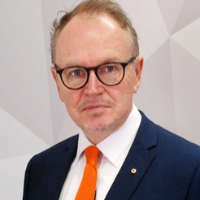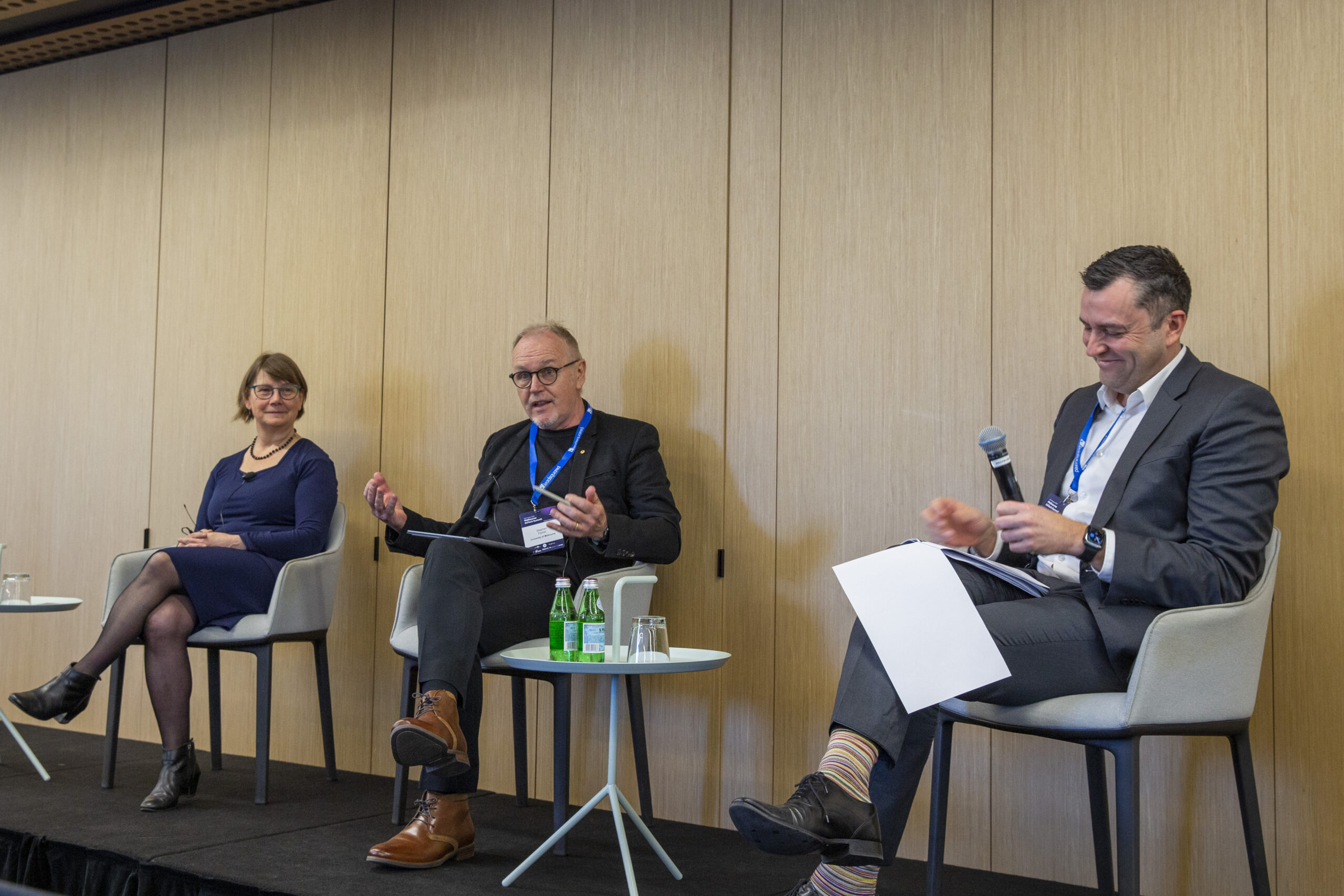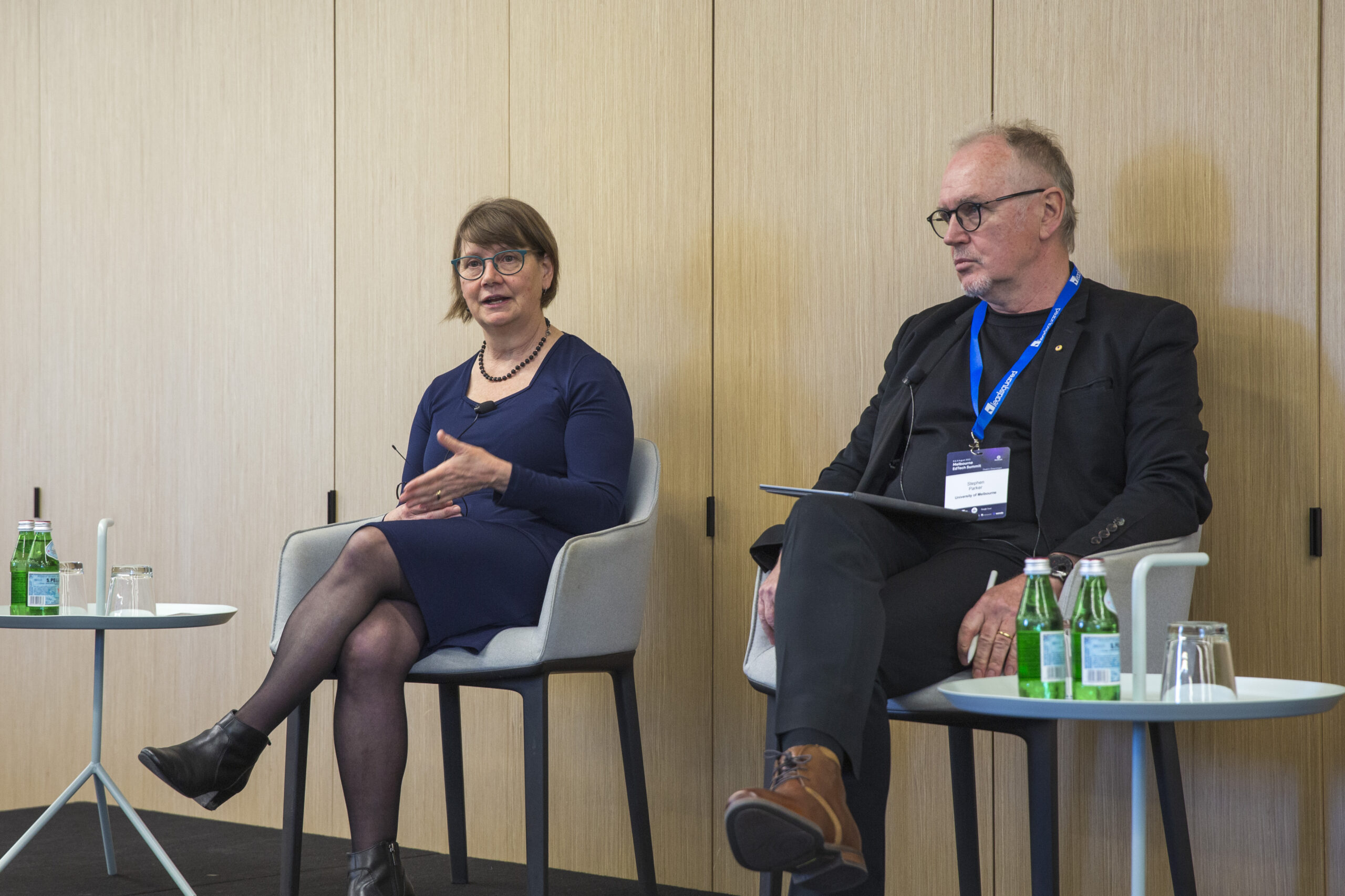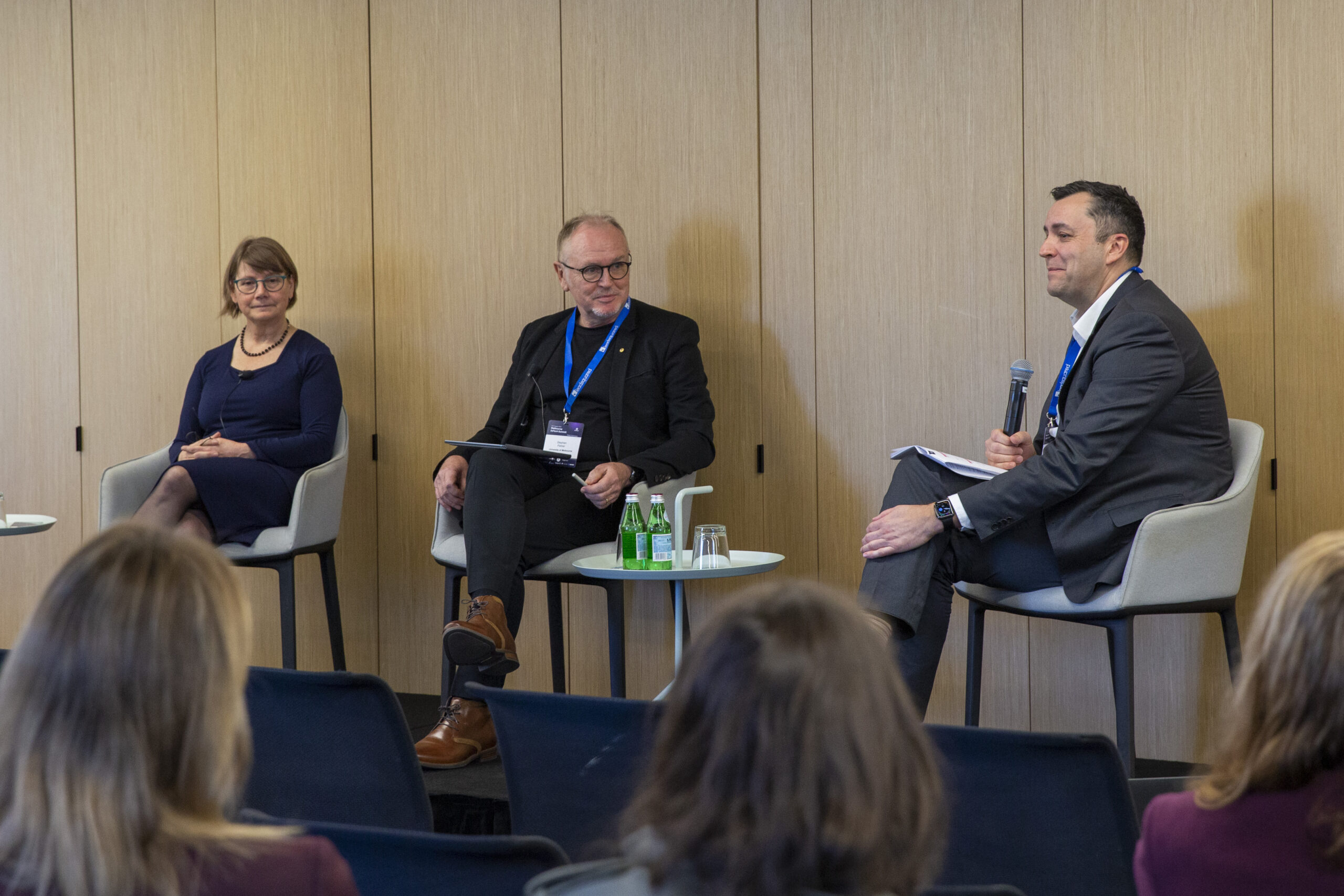This session was part of the Melbourne EdTech Week 2022. This conversation titled “Universities: The Great Connectors” was recorded on Monday 8 August 2022 at Deakin Downtown in Melbourne, Australia. Liz Johnson, Stephen Parker, and David Bowser were in discussion.
Education is a public good designed to enable a modern economy. Governments invest in education providers to ensure learners are prepared for the future. Yet, the future is always a little fuzzy.
Universities have the opportunity to be the meeting place for innovation and growth. There are ways to reimagine delivery — of assessments, courses, and work skills. How do we create universities that are platforms for the future?
In this discussion, education innovation leaders Liz Johnson, Stephen Parker and David Bowser explore the modern university as the great connector, and the role EdTech can play in supporting this connection between research, innovation and learning.
“Universities are the great connectors”
Universities as a platform
How to create the premium digital experience
Where assessment is going
Universities as a vehicle for work skills
Think Big, Drive Change, Transform Learning
What does it really mean “universities are the great connectors”?
It is important to explore what it really means when universities are the meeting point for innovation. Liz Johnson says that universities were built to connect research, teaching, and society. It is a primary goal for these institutions to operate in this way.
However, when these institutions get stagnant or are not aligning with the speed of change in society, they are challenged, says Stephen Parker. This occurred in the 1700s, where societies became a fascinating space for debate, while universities were seen as too traditional. But this can be a great opportunity: change can come from reflection and reimagining.
He argues that universities may need to look through a new lens, in order to have a completely different way of seeing the world. Then, we might see modern ways of engaging with these stakeholders.
Universities as a platform
This is not a new idea: even marketplaces are platform business models. It might be important to consider whether universities can be set up in this way, says Stephen Parker. Courtesy of technology, a successful platform model may allow for more research and impact more people.
Liz Johnson says there will be some factors that will moderate how that change will happen. With a public institution, what it is and what it does is not driven by market forces. A public good is meant to be for everyone. In Australia, there is currently a high level of loyalty to the local institution. People learn locally. When potential students engage with these local institutions, they want their learning to be organised for them.
The real work is in lifelong learning. If it is not the first degree, it is the fifth. It is the microcredential you have completed to pick up a skill. This shift will be enabled by the platform model.
How to create the premium digital experience
Liz Johnson offers context on the digital experience through Deakin University’s strategy. Deakin was initially established as a distance provider. With this history in mind and with visionary leadership, Deakin made going digital a priority.
Deakin set up video conferencing years before it became an integral part of the way we live. The university has learned that flexibility does not mean no help — it means support with freedom. Students want the option of how they learn. Students become the designers of the experience that will best suit their needs.
What cannot be replaced at the moment is socialising. Students do like meeting each other in person. This is where the infrastructure of the university campus comes in. The campus should be a valuable investment for them to enter and use, too.
The state of assessment
No overstatement: the state of assessments has totally changed. At Deakin University, Liz Johnson says, they previously held 352 on-campus exams and sent exams across the world. This was a big logistical challenge. Then, they shifted to open book, LMS exams and the students and the educators did not want to go back to the old way.
Students did not see the exam hall model as a useful workplace skill. The digital alternative became the best path forward.
This shift not only helped them reconsider the design and delivery of these exams, but the amount. Which exams were truly essential to keep? As a result, the amount shrunk and more continuous assessments were brought in.
This cannot be done without support, Liz Johnson says. Their team offered extended hours from their technical support staff around exam time. At the end of the day, it is better to have a fruitful conversation on the best assessment design than around the stress of logistics.
Universities as a vehicle for workplace skills
When talking to employers and asking them what they are looking for in talent, it is those translational skills. Critical thinking and adaptability are key. They are looking for people who can act professionally, as well as adapt and change in the workplace.
Often, universities will hear from industry to not worry about skills: just really teach them how to think. These are tricky perspectives to manage, but university aims to offer the skills that will make them employable in their field of choice.
Think Big, Drive Change, Transform Learning
At the end of each session, the speakers were asked to respond to the Melbourne EdTech Week theme: think big, drive change, and transform learning. What could change universities as connectors?
Autonomy through technology for people to navigate their own path, rethinking how we deploy and package learning through technology, and the metaverse.
Speakers

Liz Johnson
Professor Liz Johnson leads Deakin’s ambitious Student Learning and Experience strategy, including the drive to premium digital education. Professor Johnson’s portfolio includes Academic Governance and Standards, Cloud Campus and Global Studio among many other strategic units.

Stephen Parker
After a career in universities as an academic and manager, including appointments as Dean, Deputy Vice-Chancellor and Vice-Chancellor Stephen joined KPMG Australia as its Lead Education partner. Now he is the Principal at The Higher Education and Research Group.

David Bowser
David Bowser has more than 20 years’ experience in higher education as an academic and a strategy consultant. In 2016 he created Curio Group, a collective of advisors, educators and product developers focused on working directly with education institutions to make a difference.



